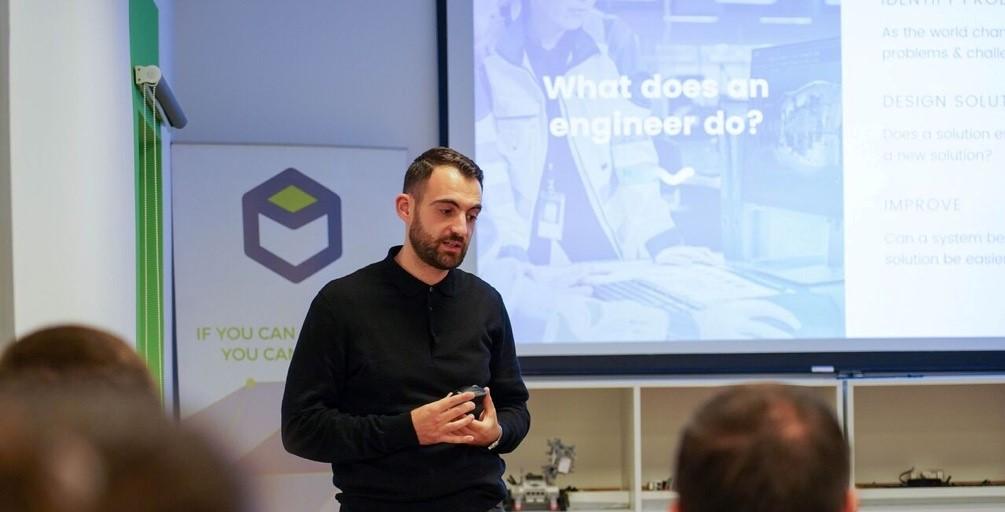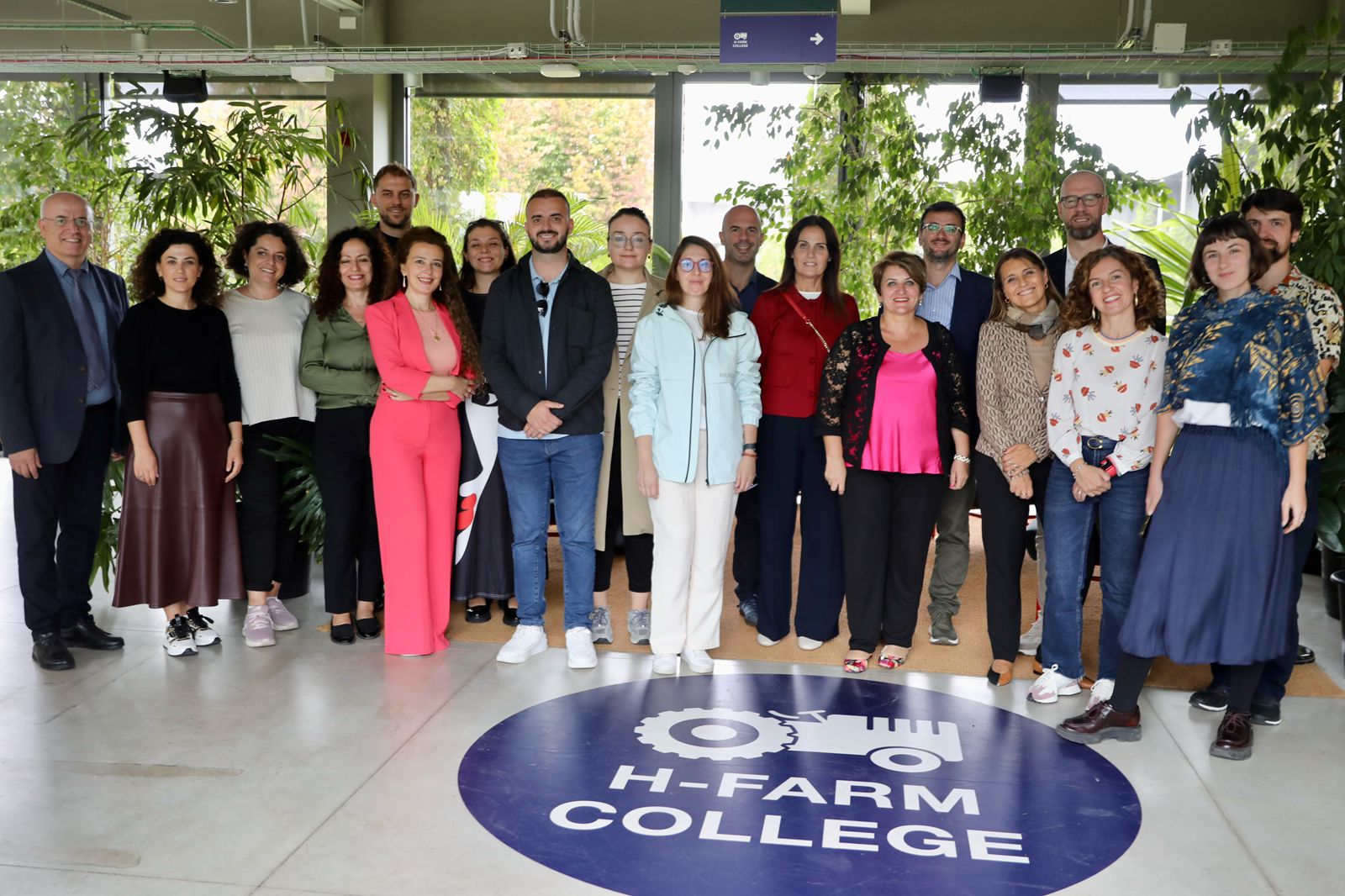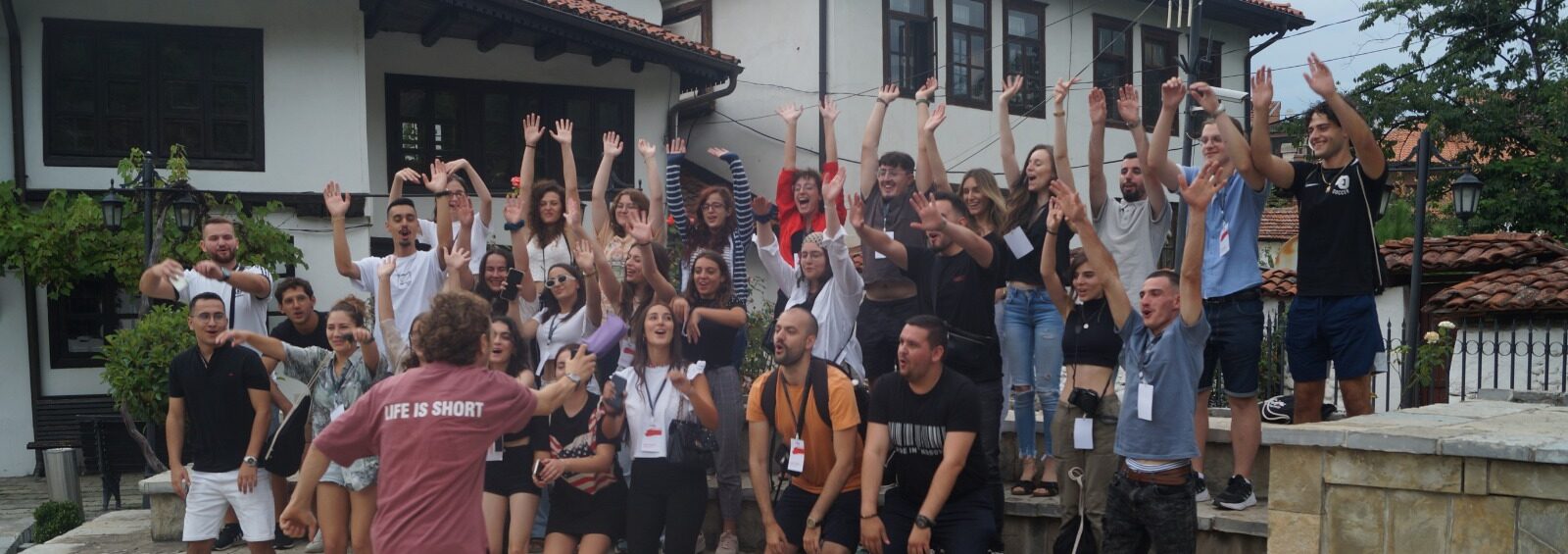Kreshnik Rama has never lived in Kosovo. Born in 1993 in Sweden, he was living and working in Kosovo as one of his greatest hostages.
Therefore, when he saw GERMIN’s call within the Citizen Engagement Activity, for the engagement of diaspora professionals to contribute to building the capacities of Kosovo’s non-governmental organizations, he had no dilemma that he had to apply.
Kreshnik graduated in mechanical engineering and specialized in renewable energy systems – a field very lacking in Kosovo. Consequently, he gave his voluntary contribution for two months to the non-governmental organization Sustainability Leadership Kosova (SLK).
“During my time at SLK, I helped the organization develop an instrument that SLK can use when analyzing different companies/organizations, to know how to document their impact on the environment”, says Kreshnik.
Staying in Kosovo for two months and working in a non-governmental organization was a dream come true for Kreshnik.
“I did all this for fun, to create an idea of what life would look like in Kosovo, if I decided to return or if theoretically, my parents would never come to Sweden”, he says.
The hospitality from his colleagues at SLK and the friendships he made during his stay in Kosovo surprised him for the better.
“Through SLK, I have met many different companies and organizations that have helped me understand Kosovo’s conditions”, says Kreshnik.
For the contribution to Kosovo, he feels an internal need that he qualifies as a ‘debt’ that must be returned to his homeland.
“I was born in Sweden and I have never lived in Kosovo, but my parents had no other option and I think that I, together with my parents, owe this to Kosovo”, he says.
As someone born and raised outside of Kosovo, he sees the contribution to his parent’s homeland not only through remittances but above all by sharing knowledge in certain fields.
“The faculty that I have completed in Sweden (Chalmers University) is considered one of the best faculties in Europe in the field of environment, so I see myself that the biggest contribution I can make is not between the financial way but through my preparations – and this through my engagement in Kosovo”, says Kreshnik.
From the two-month work in Kosovo that he has done within the Citizen Engagement Activity, Kreshnik feels very proud of one thing.
“I am very proud of the instrument that we have developed and I have hopes that SLK can use this instrument in the future”, says Kreshnik proudly.
The Project Manager in this organization, Shpetim Shujaku, says that Kreshnik’s contribution will be long-term for SLK. He says that non-governmental organizations and institutions in Kosovo should use the knowledge that the Albanian diaspora has, in order to raise capacities in various fields. According to him, there is a great interest in the diaspora to contribute to Kosovo, but there is a lack of projects for their engagement. Therefore, when SLK saw the call for the engagement of professionals, immediately applied to engage a professional in the field of environment.
“When we saw the opportunity that you offered, we immediately decided to apply as we saw that it is necessary to have a person who has a profile like Kreshnik, to engage for a while in our organization and donate to us another point of view as an expert coming from a developed country to a developing country”, says Shpetim.
During his stay in Kosovo during the period October-December 2022, Kreshnik met several businesses/enterprises and organizations through SLK.
“Kreshnik participated in the ‘Diaspora Professional Tour’ project that we had around Kosovo, where we visited several different businesses, institutions, and organizations to see closely how they operate and at the same time offered them advice in terms of how to direct them towards sustainability”, says Shpetimi
According to Shpetim, it is very important to engage the diaspora experts in Kosovo, as he says that they also have knowledge of the Kosovar context.
“If a foreigner with great expertise came, but who does not understand the context of Kosovo, he would have a lot of trouble identifying some issues that appear”, says Shpetim.
GERMIN contributes directly to the promotion of the diversity of resources for the civil society sector through the Citizen Engagement Activity, specifically the engagement of diaspora experts, where in addition to financial resources the approach will also affect the voluntary resources of diaspora professionals, as an immediate need in the case of SLK. The Citizen Engagement Activity in Kosovo is a five-year initiative implemented by Kosovar Civil Society Foundation in partnership with the United States Agency for International Development (USAID).
*This publication is made possible by the generous support of the American people through the United States Agency for International Development (USAID). The contents are the responsibility of GERMIN and do not necessarily reflect the views of USAID or the United States Government.




